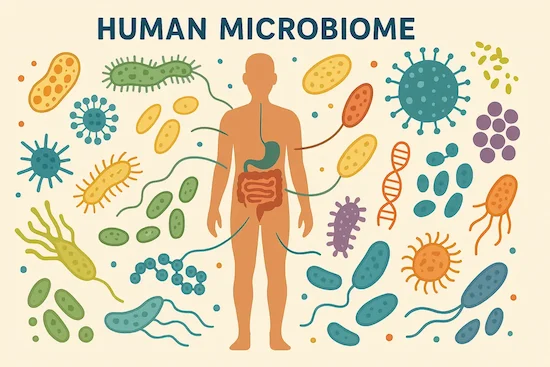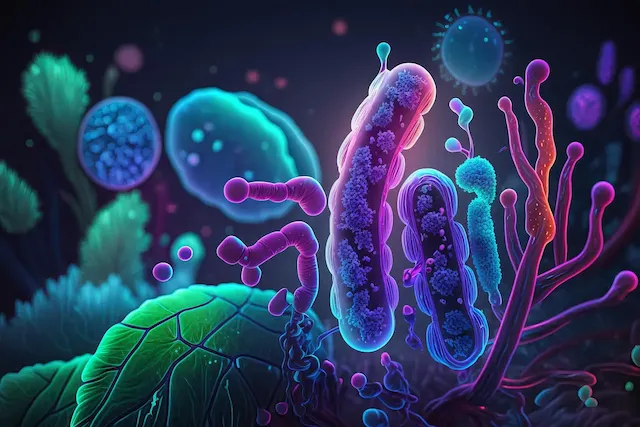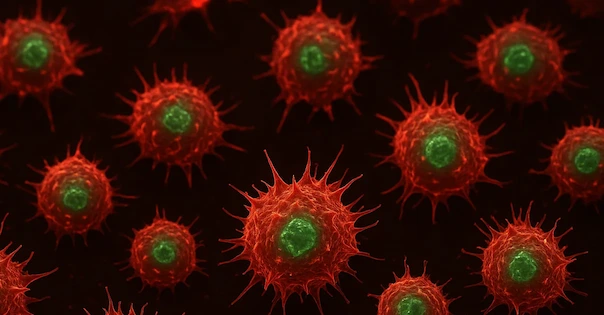
Breast cancer Complementary Therapies
This page is currently being updated and expanded.
“Healing does not happen in a doctor’s office, it happens at home.“
Junnifer Simmons M.D
Below are details of complementary therapies – all backed by studies – that you can add to your conventional treatment (surgery etc) to:
- Boost your long-term survival
- Reduce treatment side-effects
- Improve treatment effectiveness
- Improve your quality of life
- Reduce your risk of a recurrence
Important updates on surgery and chemotherapy.
See Latest Updates on Breast Cancer
Have you just started standard treatment (chemo etc)?
If you haven’t started treatment yet (or just started recently) please see
Before starting treatment page for helpful tips.
Complementary therapies for breast Cancer
Unless otherwise indicated, only studies involving human patients are cited here.
At a glance:
- Regular Exercise
- Healthy Diet
- Daily Sunshine
- Emotional Release
- Healthy Weight
- Alcohol Limits
- Intermittent Fasting
- Natural Extracts and Compounds
- Off-label Drugs
- Healthy Gut
- Addressing Parasites etc
- Killing cancer stem cells
- Good immunity
- Removing cancer’s fuel
- Vitamin C therapy
- hyperbaric oxygen therapy
“If each thing you did added 3% or 5% to your survival it could make a big difference if you built a whole programme containing these various elements!”Chris Woollams. Founder of canceractive.com – the UKs no.1 cancer charity

Regular Exercise
improves Survival
How exercise is of significant benefit to cancer patients.
✓ Studies have shown that this extends survival in cancer patients.
✓ One of the 10 key healing factors identified by Dr Kelly Turner
•Prolongs Survival
•Reduces Cachexia
•Reduces Chemo-brain
•Boosts Immunity
•Improves quality of life
•General protection from radiation therapy
Exercise to improve breast cancer survival
A large cohort study involving 2987 female registered nurses who were diagnosed with stage I, II, or III breast cancer found that women who exercised moderately (the equivalent of walking 3 to 5 hours per week at an average pace) after a breast cancer diagnosis had approximately 40% to 50% lower risks of breast cancer recurrence, death from breast cancer, and death from any cause compared with more sedentary women.
See more on Physical Exercise page.

Plant-based diet
improves survival
Eat a plant-based diet for better survival
✓ Studies have shown that this extends survival in cancer patients.
✓ One of the 10 key healing factors identified by Dr Kelly Turner
Numerous scientific studies looking at the link between diet and cancer survival show that adopting either a Plant-based Diet can PROLONG SURVIVAL in cancer patients (supporting studies below).
Fruit and vegetables improve survival
The authors of this 2020 study involving 8,927 women with stage I–III breast cancer observed better overall survival after breast cancer diagnosis among women with higher vegetable consumption; specifically, green leafy vegetables, cruciferous vegetables, and fruit.
A study by Vanderbilt-Ingram Cancer Center and Shanghai Center for Disease Control and Prevention, of 4,886 Chinese breast cancer survivors diagnosed with stage 1 to stage 4 breast cancer found cruciferous vegetable intake during the first 36 months after diagnosis was associated with a 27% to 62% decrease in total mortality, 22% to 62% decrease in risk for breast cancer-specific mortality, and 21% to 35% decrease in risk for recurrence.
Women with breast cancer are at higher risk of cardiovascular disease (CVD).
This 2024 study looked at 3415 women diagnosed with invasive breast cancer. The study found that implementing diets concordant with healthy dietary patterns may be beneficial for preventing CVD and CVD-related deaths for breast cancer patients.
Soy isoflavone significant reduced risk of Breast Cancer recurrence
This study analysed 9514 breast cancer survivors. Soy isoflavone intake was measured with validated food-frequency questionnaires. After a mean follow-up of 7.4 years, postdiagnosis soy food consumption of ≥10 mg isoflavones/day was associated with a statistically significant reduced risk of recurrence. See also Haelan 951 (A fermented soybean-derived beverage)
Flaxseed reduces breast cancer mortality
This study assessed the prognosis of 1,140 postmenopausal patients with breast cancer age 50 to 74 years. Results: Higher serum enterolactone [found in flaxseed] levels were associated with significantly reduced hazard ratios for death only for estrogen receptor–negative tumors but not for estrogen receptor–positive tumors.
This Systematic Review of 10 studies (unspecified number of women involved) found that Flax may protect against primary breast cancer. Mortality risk may also be reduced among those living with breast cancer.

CANCER PROMOTING FOODS TO AVOID
Studies have shown that some of these reduce survival time while other promote inflammation (supporting studies below).
- Meat and animal protein (including eggs).
- Cows’ dairy: milk, cheese, yogurts etc
- Processed Foods
- Processed meat, such as bacon, sausage, and lunchmeat.
- Foods high in added sugar such as fizzy drinks, fruit juices, desserts, sweets, syrup etc.
- Deep fried items such as French fries, fried chicken and donuts.
- Trans fats found in baked goods, fried foods, some spreads (like margarine), and snack foods.
- Commercial baked goods such as cakes, pies, and cookies.
- Bread and pasta made with white flour.
Cooking methods can make a difference
When you want to reduce inflammation, baking, steaming or fast stir-frying are preferable to deep frying or grilling.
See more on Radically change your diet page

Emotional and Spiritual wellness
improves survival
Emotional and Spiritual wellness
✓ Studies have shown that this extends survival in cancer patients.
✓ One of the 10 key healing factors identified by Dr Kelly Turner
Release suppressed emotions for better survival
Research is quite clear that suppressed emotions not only contribute to the development of cancer, but they can also lead to worse prognosis and more aggressive cancers.
This study involving 847 women diagnosed with invasive breast cancer looked at breast cancer survival and found that expression of emotion was related to better survival, and suppression of emotion was associated with worse survival.
This 2022 study involving 155 female breast cancer patients found a link between earlier trauma and breast cancer. It found that patients’ repression of negative emotions could contribute to the development of a more aggressive Breast Cancer type.
See more on Release suppressed emotions page
Increase Positive Emotions to improve cancer prognosis.
Several studies have shown that a positive attitude or emotional state can boost your chances of surviving cancer. In one study, among patients [number of patients not stated] with metastatic (spreading) cancers, those who expressed greater hope at the time of their diagnosis survived longer. In another study, over 400 reports of spontaneous remission of cancer were reviewed and analyzed. The patients themselves attributed their cure to a broad range of causes, but only one factor was common to all the cases—a shift toward greater hope and a positive attitude.
Read more at Increase Positive Emotions
Deepen your Spiritual Connection to improve survival
In cancer care, being spiritual can have a powerful positive effect on your outcome. Researchers with the Washington University School of Medicine have found that ovarian cancer patients had less stress and depression plus lower levels of certain factors related to tumor growth.
This study says: A meta-analysis of data from 42 independent samples [number of patients unknown] examining the association of a measure of religious involvement and all-cause mortality is reported. Religious involvement was significantly associated with lower mortality , indicating that people high in religious involvement were more likely to be alive at follow-up than people lower in religious involvement.
In this study, data were drawn from 101 unique samples encompassing over 32,000 patients. The study concluded: Results of the current meta-analysis suggest that greater religion/spirituality is associated with better patient-reported physical health.
Read more at Deepen your Spiritual Connection

Good vitamin D status improves survival
Enjoy safe sun exposure.
✓ Studies have shown that this extends survival in cancer patients.
Sunshine on your skin causes vitamin D to be produced from the cholesterol levels beneath.
Research has shown that women with breast cancer who initiated vitamin D supplements within the first 6 months of their diagnosis had substantially lower breast cancer-specific mortality.
This study by Irish Researchers says:
Our original cohort comprised of 5417 women from the linked NCRI-PCRS databases with a diagnosis of stage I–III breast cancer between the ages of 50–80 years, who were not dispensed vitamin D supplements before diagnosis.
Of these, 2581 (49%) initiated any vitamin D use after breast cancer diagnosis and the vast majority (98%) of these were on a vitamin D and calcium combination drug.
Our results were users who initiated vitamin D supplements within the first 6 months of their breast cancer diagnosis had a substantially lower breast cancer-specific mortality.
We found that de novo post-diagnostic vitamin D use was associated with a 20% reduction in breast cancer-specific mortality in this large cohort study. In additional analysis, we found the reduction in breast cancer-specific mortality was even greater at 49%, if vitamin D use was initiated soon after the breast cancer diagnosis (within 6 months).
Note: Chemo depletes Vitamin D levels so 10,000 IUs daily is recommended for cancer patients – ask your doctor first.
If you cannot get adequate sunshine you’ll need to supplement.
See more on Vitamin D page

A Healthy Weight
improves survival
Maintain a Healthy Weight
Research indicates that obesity may worsen several aspects of cancer survivorship, including quality of life, cancer recurrence, cancer progression, and prognosis (survival).
This 2021 study involved 351 women who had completed curative treatment for breast cancer, more than 6 months before randomization. It found exercise and weight loss are associated with decreased breast cancer recurrence, which may be mediated through reduced insulin levels and improved insulin sensitivity.
How does obesity affect cancer survivorship?
The National Cancer Institute says: Research indicates that obesity may worsen several aspects of cancer survivorship, including quality of life, cancer recurrence, cancer progression, and prognosis (survival).For example, obesity is associated with increased risks of treatment-related lymphedema in breast cancer…

Limiting alcohol
improves survival
Limit alcohol consumption
Research has shown that drinking less than one standard drink of alcohol per day compared with no drinking was associated with an increased risk of breast cancer recurrence and death due to breast cancer.
This study involving 1,897 participants diagnosed with early-stage breast cancer examined the association of alcohol consumption after breast cancer diagnosis with recurrence and mortality among early-stage breast cancer survivors.
It found that regular drinking equivalent to three to four standard drinks or more per week was associated with a 1.3-fold and 1.5-fold increased risk of breast cancer recurrence and breast cancer death, respectively. The increased risk of recurrence appeared to be greater among postmenopausal and overweight and obese women. Alcohol intake was not associated with all-cause death and possibly associated with decreased risk of non–breast cancer death.
Alcohol progresses existing cancers
This study says: It appears that alcohol exposure not only promotes carcinogenesis but also enhances the progression and aggressiveness of existing cancers.
Available evidence indicates that alcohol increases Cancer Stem Cell population, and therefore may promote aggressiveness, recurrence, and therapy resistance of cancers.

Fasting improves survival
Fast overnight to reduces recurrence risk
Research has shown that fasting less than 13 hours was associated with a statistically significant 36% increased risk of breast cancer recurrence compared to fasting for 13 or more hours per night.
In this study of 2413 women with breast cancer, nightly fasting duration of less than13 hours per night was associated with a 36% higher hazard for breast cancer recurrence compared with fasting 13 or more hours per night. Conclusions: Prolonging the length of the nightly fasting interval may be a simple, nonpharmacologic strategy for reducing the risk of breast cancer recurrence.
See more on Fasting as a cancer treatment page

Herbs & Spices and Plant extracts improve survival
Plant-based compounds and supplements
✓ Studies have shown that this extends survival in cancer patients.
✓ One of the 10 key healing factors identified by Dr Kelly Turner
Natural products have always played an important part in cancer treatment. These chemicals are generally obtained from plants and microbes, which are significant sources of bioactive molecules with strong anticancer effects.
Melatonin (a hormone secreted in the brain during the night – available as a supplement).
This study review [total number of patients not specified] says numerous experimental studies have indicated an oncostatic [halts the spread of a cancer] role of melatonin in various cancers, such as breast…
This meta-analysis of eight randomized controlled trials [total number of patients not specified] concluded:
Melatonin is effective in suppressing neoplastic growth in a variety of tumors like melanoma, breast and prostate cancer…
Melatonin as an adjuvant therapy for cancer led to substantial improvements in tumor remission, 1-year survival, and alleviation of radiochemotherapy-related side effects.
This Review [total number of patients not specified] made the following observations:
Several clinical trials have suggested the potential of melatonin in the management of breast cancer. In one study, 14 metastatic breast cancer patients who were unresponsive to tamoxifen alone were given 20 mg melatonin daily in the evening along with tamoxifen. A response was achieved in 28% of these patients… Studies have also found a correlation between a decrease in nocturnal melatonin and an increase in tumor size in individuals with primary breast cancer.
See more at Melatonin page.
Paw Paw Cell-Reg (herbal anti-cancer therapy)
This study of 94 patients says: James Forsythe, M.D., Director of the Cancer Screening and Treatment Center of Nevada, in Reno, agreed to recruit test subjects for us among his stage 4 cancer patients. Dr. Forsythe found that Paw Paw Cell-Reg…stabilized a number of patients with advanced breast, lung,
prostate, lymphatic, and colorectal cancers…Evidence of effectiveness included reductions in the blood levels of tumor antigens, measurable decreases in tumor sizes, inhibition of further metastases, weight gain, increased mobility, enhanced energy, and increased duration of survival. See more at Paw Paw Cell-Reg
Berberine
No human studies found. Abundant anecdotal evidence.
Berberine is a natural chemical found in some plants like European barberry, goldenseal, goldthread, Oregon grape, phellodendron, and tree turmeric.
This 2020 Review article says: Berberine (BBR) has been extensively studied in vivo and vitro experiments. BBR inhibits cell proliferation by regulating cell cycle and cell autophagy, and promoting cell apoptosis. BBR also inhibits cell invasion and metastasis by suppressing EMT and down-regulating the expression of metastasis-related proteins and signaling pathways. In addition, BBR inhibits cell proliferation by interacting with microRNAs and suppressing telomerase activity. BBR exerts its anti-inflammation and antioxidant properties, and also regulates tumor microenvironment. This review emphasized that BBR as a potential anti-inflammation and antioxidant agent, also as an effective immunomodulator, is expected to be widely used in clinic for cancer therapy.
Taking supplemental antioxidants during chemo etc.
Common examples of supplemental antioxidants include vitamins C and E, selenium, zinc, and beta-carotene.
Some oncologists discourage the use of supplemental antioxidants claiming they could interfere with treatment. This is based on naive and inaccurate assumptions says this study.
For example, this study says
In 15 human studies, 3,738 patients who took non-prescription antioxidants and other nutrients actually had increased survival.

Off-label drugs
improve survival
Off-label drugs
An off-label drug is a medicine used for a disease or condition it wasn’t originally approved for by a regulatory authority. This common practice allows doctors to use drugs in new ways, based on emerging research, and can be a crucial part of cancer treatment, especially when standard options are limited.
Several off-label drugs have shown a breast cancer survival benefit in randomized trials or studies. These include Lipophilic Statins, Antihistamines, Propranolol, Melatonin, and Bisphosphonates.
Statins
This study all 18,769 female diagnosed with stage I–III invasive breast carcinoma who were reported to the Danish Breast Cancer Cooperative Group registry between 1996 and 2003. Women were followed for a median of 6.8 years after diagnosis. Associations between statin prescriptions and breast cancer recurrence were estimated
Most prescriptions for lipophilic statins in the study population were for simvastatin. Exclusive simvastatin users experienced approximately 10 fewer breast cancer recurrences per 100 women after 10 years of follow-up, compared with women who were not prescribed a statin.
This study of 20,559 Swedish women diagnosed with breast cancer says: In conclusion, statin users, particularly simvastatin users, had a lower risk of breast cancer related deaths compared to non-users in this nationwide cohort of Swedish women with breast cancer diagnosed after the age of 40.
See more on Keep your Cholesterol and Triglycerides at healthy levels page
Antihistamines (medications to treat hay fever, runny nose, itchy eyes etc}
Loratadine
This study included all 54,406 women with Breast Cancer [BC] diagnosed in Sweden 2000 through 2008. It concluded:
This population based registry study shows that women treated with second generation antihistamines including Loratadine and desloratadine have a better overall and BC specific survival compared with non users regardless of age, history of allergy, ER status and tumor stage. The results are strongest for desloratadine use and use after BC diagnosis.
Notes:
1. There is some concern that the antihistamine Cimetidine has estrogenic properties and should NOT be used with ER+ breast cancer.
2. There is a study showing that long-term use (but not short-term use – 10 weeks) of antihistamines can increase breast cancer risk.
See more on Antihistamines page
Bisphosphonates (drugs that are used to treat abnormally high blood calcium)
This study involving 18 766 women with early breast cancer, says:
…When the study authors looked at the findings according to the trial participants’ menopausal status, they found that treatment with adjuvant bisphosphonates had no effect on any of the outcomes for premenopausal women. However, among the 11,767 postmenopausal women included in the analysis, the use of bisphosphonates was associated with statistically significant reductions in distant recurrence, in bone recurrence, and in death from breast cancer.
See Bisphosphonates
Propranolol (a beta-blocker that is used to treat high blood pressure)
This Editorial looked at a number of studies. [Total number of participants is not specified[. It says: Propranolol was also shown to have an effect on metastasis to the brain – the other major site of interest in breast cancer. Choy et al assessed retrospective data that showed that for stage II breast cancer patients beta-blocker usage was associated with a significantly reduced risk of post-operative recurrence or distant metastasis.
Retrospective studies have shown that beta-blocker usage is associated with improved recurrence free survival in women with triple-negative breast cancer (TNBC) and reduced risk of metastasis. In a trial of advanced HER2 negative breast cancer, beta-blockers were associated with improved progression free survival (PFS), particularly for the subgroup of TNBC patients. There is also some evidence to suggest that propranolol may revert resistance to trastuzumab in HER2 positive breast cancer.
This meta-analysis of twelve studies involving 20,898 subjects provides evidence that beta blocker use can be associated with the prolonged survival of cancer patients, especially patients with early-stage cancer treated primarily with surgery. See more on Beta-blockers page
Metformin (drug used to control blood sugar levels).
This study reviewed the records of 460 consecutive patients with pathologically proved stage I-III breast cancer…Regarding overall survival, diabetic breast cancer patients treated with metformin as antidiabetic agent had longer mean overall survival time (59.71 months) than diabetic patients not treated with metformin (41.79 months) and nondiabetic patients (52.0 months).
See Metformin
See even more at Cancer Survival Tips,

A Healthy Gut
improves survival
Heal Your Gut to reduce infections and recurrence
✓ Studies have shown that this extends survival in cancer patients.
According to this study, cancer patients run a great risk of developing enteroparasitic infections, as they are more susceptible to opportunistic agents due to anticancer treatment and are already immunocompromised because of the disease itself. These opportunistic infections are usually more severe in this group of individuals, and may even lead to fatal complications. Of the 73 participants in the study, 45 (61.6%) were positive for one or more parasitic species…
This study says:
Scientific advances have identified a subset of the gut microbiota: the estrobolome, those bacteria that have the genetic capability to metabolize estrogen, which plays a key role in most breast cancers.
Consumption of a poor diet and a sedentary lifestyle have a substantial impact on our gut microbiota.
Diet plays an integral role in the complex interrelationship between the human gut microbiota, estrogen metabolism, and its influence on breast cancer recurrence as well as metastatic potential. Diet plays an integral role in the complex interrelationship between the human gut microbiota, estrogen metabolism, and its influence on breast cancer recurrence as well as metastatic potential.
An expert in this area is Chris Woollams, a former Oxford University biochemist, founder of the UK’s leading cancer charity CANCERactive, and author of Heal your gut – Heal your body. You can check out his protocol and more info on Heal your Gut page

Addressing Parasites etc
improves survival
Address Parasites, Bacteria, Viruses
✓ Studies have shown that this extends survival in cancer patients.
Intestinal parasitic infections in immunocompromised patients can lead to serious complications when not diagnosed and treated early. In a study, Breast cancer showed the highest occurrence (32/43.8%).
The National Cancer Institute says: Certain infectious agents, including viruses, bacteria, and parasites, can cause cancer or increase the risk that cancer will form. Some viruses can disrupt signaling that normally keeps cell growth and proliferation in check. Also, some infections weaken the immune system, making the body less able to fight off other cancer-causing infections.
Ivermectin,
Ivermectin is a broad-spectrum anti-parasitic agent, primarily deployed to combat parasitic worms in veterinary and human medicine. This unprecedented compound has mainly been used in humans as an oral medication for treating filarial diseases but is also effective against other worm-related infections and diseases, plus several parasite-induced epidermal parasitic skin diseases, as well as insect infestations…
…Over the past few years, there have been steadily increasing reports that ivermectin may have varying uses as an anti-cancer agent, as it has been shown to exhibit both anti-cancer and anti-cancer stem cell properties. – The Journal of Antibiotics
Fenbendazole
This 2024 study states:
With its high safety profile, affordability, and minimal side effects, fenbendazole stands out as a potential option for cancer therapy. Moreover, fenbendazole is easy to acquire and can be administered orally, offering a less invasive treatment that can increase patient adherence. Furthermore, by inhibiting glycolysis in cancer cells and preventing lactate buildup, fenbendazole surpasses albendazole and mebendazole in treating drug-resistant cells, making it the benzimidazole of choice for cancer therapy.
Artemisinin
This Study says: Artemisinin is a sesquiterpene obtained from sweet wormwood (Artemisia annua) which elicits antimalarial, antiparasitic, anti-fungal, antiretroviral, anticancer and anti-schistosomiasis activities. See Artemesinin
Para-Free Plus
Para-Free Plus, has a triple action – it works against parasites, it works against yeasts and it’s a colon cleanse! Available at ournaturalselection.com
See more at Address parasites etc

Killing cancer stem cells
improves survival
Kill cancer Stem Cells for improved survival.
Why are Cancer Stem Cells and Senescent Cancer Cells so important?
It is estimated that metastasis is responsible for about 90% of cancer deaths. This estimate has changed little in more than 50 years, says this study.
Most metastases are caused by Cancer Stem Cells (CSCs).
CSCs have been shown in numerous cancer models to be involved in tumor development, cell proliferation, and metastatic dissemination, while possessing a capacity for sustained self-renewal. CSCs, which typically represent a small proportion of total cells of a given tumor, also exhibit resistance to chemotherapy and radiotherapy. Indeed, exposure to these treatments may promote “stemness” in – cancer cells, which may explain why successful therapeutic reduction of tumor bulk will often fail to produce clinical improvement, says this 2016 study.
Compounds that can kill cancer stem cells include
Curcumin
Lycopene
Green Tea
See full list of compounds at Kill Cancer Stem Cells

Good immunity
improves survival
Boost Immunity for better survival
✓ Studies have shown that this extends survival in cancer patients.
A good immune system can work for or against you!
This 2019 study by Yuexin Liu, MD Anderson Cancer Centerlooked at the effect pre-existing immune conditions had on cancer. A total of 10,062 PanCanAtlas tumor samples had both gene expression and survival data, covering 32 different cancer types.
The results showed that in the majority of human cancers, higher immune response was significantly associated with better Overall Survival, Progression Free Interval, or both, which was in agreement with previous reports that pre-existing immunity is probably necessary for most treatment response.
The study also demonstrated that in some cancer types higher immune response is significantly associated with worse outcome.
In particular, higher immune responses were significantly correlated with longer Overall Survival in 7 cancer types:
- breast invasive carcinoma,
- cervical squamous cell carcinoma and endocervical adenocarcinoma,
- head and neck squamous cell carcinoma,
- lung adenocarcinoma,
- sarcoma,
- skin cutaneous melanoma
- uterine corpus endometrial carcinoma.
In contrast, higher immune responses were significantly correlated with shorter Overall Survival in four cancer types:
- kidney renal clear cell carcinoma,
- low-grade glioma,
- thymoma,
- uveal melanoma.
A high immune response in triple negative breast cancer is associated with better survival.
However, survival was negatively correlated with immune activity in ER-positive/HER2-negative breast cancer.
A good diet, Daily exercise and Meditation can boost your immune system.
See more ways at Boost Immunity

Removing cancer’s fuel
improves survival
Remove your cancer’s fuel for better survival
✓ Studies have shown that this extends survival in cancer patients.
The following may be causing or feeding your cancer:
- Bad diet and lifestyle
- Parasites, Bacteria, and Viruses
- Toxins in your body, air. food, water
- Geopathic stress
- Grief, Distress, or other emotional turmoil
- Toxic Relationships
Toxic relationships
According to a Ohio State University study breast cancer patients who have a poor relationship with their spouse may face a more difficult road to recovery than would other women.
Researchers found that, over five years, patients in distressed marriages had higher levels of stress, less physical activity, slower recovery and more symptoms and signs of illness than did similar patients who reported good marriages.
“The quality of the marital relationship may not be the first thing women worry about when they get a cancer diagnosis. But it may have a significant impact on how they cope physically and emotionally,” said Hae-Chung Yang, co-author of the study and research associate in psychology at Ohio State University.
See more info at Remove cancer’s fuel

Check out IV
Vitamin C therapy
Check out IV Vitamin C therapy
✓ Studies have shown that this extends survival in cancer patients.
Treatment of breast cancer patients with IV vitamin C was shown to be a well tolerated optimization of standard tumour-destructive therapies. It has also given the opportunity to many patients to increase survival time.
This study (Cameron and Campbell) states:
50 patients with various advanced cancers who were considered “terminally ill” were prescribed a daily dose of 10 grams ascorbate [Vitamin C]. During the observation period (660+ days), 17 patients showed no response, 10 had a minimal response and 6 patients died. Of the remaining patients, however, 11 had evidence of slowed tumor growth, 3 showed a cessation of tumor growth, and 5 showed an objective tumor regression with long-term survival.
This study says:
There are a wide variety of mechanisms by which ascorbate prevents and inhibits malignant growth… Ascorbate may produce benefits in both prevention and treatment of cancer…The ideal anticancer agent is obviously one that specifically interferes with tumor growth, prolongs survival time, and improves quality of life. There is evidence that ascorbate might fit this description…Based on the evidence reviewed herein, we suggest the use of intravenous AA as adjuvant therapy in cancer treatment.
See more at IV Vitamin C therapy

Check out hyperbaric oxygen therapy
Check out hyperbaric oxygen therapy
✓ Studies have shown that this extends survival in cancer patients.
Hyperbaric oxygen may increase the amount of oxygen in cancer cells, which may make them easier to kill with radiation therapy and chemotherapy. In medicine, breathing HBOT increases the amount of oxygen in the body.
National Cancer Institute says oxygen that is given at a pressure that is higher than the pressure of the atmosphere at sea level. In medicine, breathing hyperbaric oxygen increases the amount of oxygen in the body…It is being studied in the treatment of some types of cancer. Hyperbaric oxygen may increase the amount of oxygen in cancer cells, which may make them easier to kill with radiation therapy and chemotherapy.
This study says: We conclude that the administration of HBO can provide many clinical benefits in the treatment of tumours, including management of highly malignant gliomas. Applied immediately before irradiation, it is safe and well tolerated by patients, causing rare and limited side effects. The results obtained with a combination of HBO/radiotherapy protocol proved to be especially favourable compared to radiation treatment alone. HBO can also increase the cytostatic effect of certain drugs, which may render standard chemotherapy more effective.
This study found: Despite the fact that behavior and prognosis of the triple positive and negative subtypes of cancer are different, the HBOT had a similar suppressive effect on tumor growth, indicating that they share a common oxygen dependent anti-tumor mechanism…HBOT significantly reduced both numbers and total area of the metastatic lesions…
Chemo drugs – contraindication
This Study says: It is, however, important to underline that Mayer et al. list up five chemotherapeutic agents (doxorubicin, bleomycin, disulfiram, cisplatin, and mafenide acetate); all of which are strongly contradictory in combination with HBOT due to potential potentiation of toxicity.
See more at HBOT
See also:
Integrative therapies (overseas Clinics)
Alternative Treatments
Conventional Treatments (from National Cancer Institute)
About Breast Cancer Hormone Status
Breast cancer cells taken out during a biopsy or surgery will be tested to see if they have certain proteins that are estrogen or progesterone receptors.
When the hormones estrogen and progesterone attach to these receptors, they stimulate the cancer to grow. Cancers are called hormone receptor-positive or hormone receptor-negative based on whether or not they have these receptors (proteins).
Breast cancer cells may have one, both, or none of these receptors but about two out of every three breast cancers will have at least one type of hormone receptor.
Knowing the hormone receptor status is important in deciding treatment options. Hormone status is defined as follows:
- ER+ The breast cancer cells have estrogen receptors
ER- The breast cancer cells do not have estrogen receptors - PR+ The breast cancer cells have progesterone receptors
PR- The breast cancer cells do not have progesterone receptors - HER2+ The breast cancer cells have larger than normal amounts of HER2 receptors on their surface. HER2+ breast cancer is more likely to grow and divide faster than HER2- breast cancer.
- HER2- The breast cancer cells have a normal amount of HER2 on their surface.
There are four main female breast cancer subtypes:
- HR+/HER2-
- HR-/HER2- (aka Triple Negative)
- HR+/HER2+
- HR-/HER2+
Resources
National Breast Cancer Foundation
American Cancer Society
Penn medicine
University of California San Francisco
National Cancer Institute
Mayo Clinic
Cleveland Clinic
Healthline
WebMD
Breastcancer.org
MD Anderson Cancer Center
Page updated October 2025
